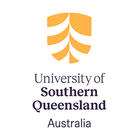Bachelor of Environmental Science (Wildlife and Pest Management)
Bachelor of Environmental Science (Wildlife and Pest Management)
Overview As climate change, agriculture, forestry, urban development, and mining disturbs landscapes, pest animal numbers are set to rise, leading to increased risk of disease, environmental problems and wildlife issues. Be prepared for this growing demand for highly skilled wildlife and pest management professionals. Study Australia’s only specialised major in…
Categories
COURSE DESCRIPTION
Overview
- As climate change, agriculture, forestry, urban development, and mining disturbs landscapes, pest animal numbers are set to rise, leading to increased risk of disease, environmental problems and wildlife issues. Be prepared for this growing demand for highly skilled wildlife and pest management professionals.
- Study Australia’s only specialised major in vertebrate pests, blending the theoretical and practical elements of managing wildlife and pest animals, embedded within broad environmental and ecological knowledge.
- Study animal health, welfare and behaviour and learn how to implement game, pest and wildlife management plans.
- Undertake a 2-week field trip from your first year, to a local site abundant with native and introduced wildlife species such as deer, wild dogs, ibis, kangaroos, bettongs, potoroos, bandicoots, and brushtail possums.
- Learn about the environment, wildlife, vertebrate pests and biosecurity, resolving human-wildlife conflict, as well as a wide range of ecological methods, sensors and technology.
- In an elective within your final year of study (dependent on COVID-19) you may have the opportunity to travel to southern Africa to extend your skills and knowledge by being involved in wildlife and pest animal research (e.g. lion and monkeys).
Further study
Graduates may choose to undertake further study in environmental science or wildlife management (e.g. Bachelor of Science (Honours), Master of Science, or PhD) in collaboration with one of our closely aligned research centres: Centre for Applied Climate Sciences and Centre for Sustainable Agricultural Systems.
Career outcomes
- Graduates may work as a biosecurity officer, ranger, pest control officer, wildlife ecologist, wildlife scientist, and game management officer.
- Graduates may work for resources/mining industries, national parks, universities, defence organisations, CSIRO, State and Federal Government departments, and other organisations contributing to sustainable utilisation and management of our natural resources.
Other majors
Climate Science
Ecology & Conservation
Water Science
REQUIREMENTS
Applicant must have Australian year 12 level or equivalent.
Students from different country must have qualifications equivalent to Australia.
English language requirements
IELTS (Academic only) – Overall minimum score of 6.0 and no individual band score of less than 5.5; TOEFL (internet based) – Overall minimum score of 80 and no individual skills score of less than 19; Pearson (PTE Academic) – Overall score of 50 and no individual Communicative Skills score of less than 50; Cambridge C1 Advanced C2 Proficiency – Overall minimum score of 169 with no less than 162 in each skill.
EDUCATIONAL INSTITUTION
The University of Southern Queensland (UniSQ) is Australia’s leading regional university. With a strong focus on research, teaching and positive student experience, we provide high-quality flexible programs producing some of Australia’s highest-paid graduates4. Our students benefit from flexible options of on-campus studies, delivered across three campuses in Queensland, Australia, online and multimodal study options and through trusted national and international education partners. UniSQ is ranked in the top 400 universities2 and 58 young universities worldwide3. UniSQ is also rated as a QS 5 Star university and ranked 5/5 stars in Australia for graduate employment and graduate starting salaries1.1 QS Stars World University Rankings, 20242 Times Higher Education World Universities Rankings, 20243 Times Higher Education Young Universities Rankings, 20244 QILT Graduate Outcomes Survey, Postgraduate Results, 2021-2022




